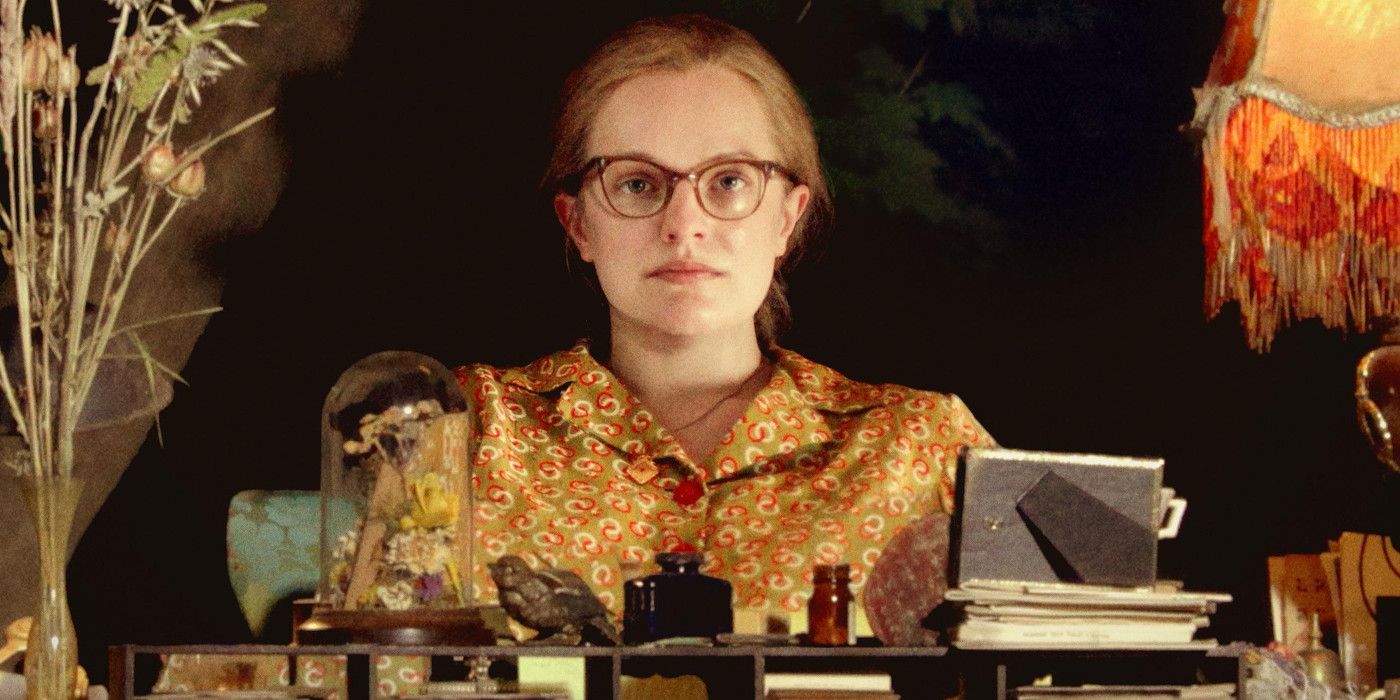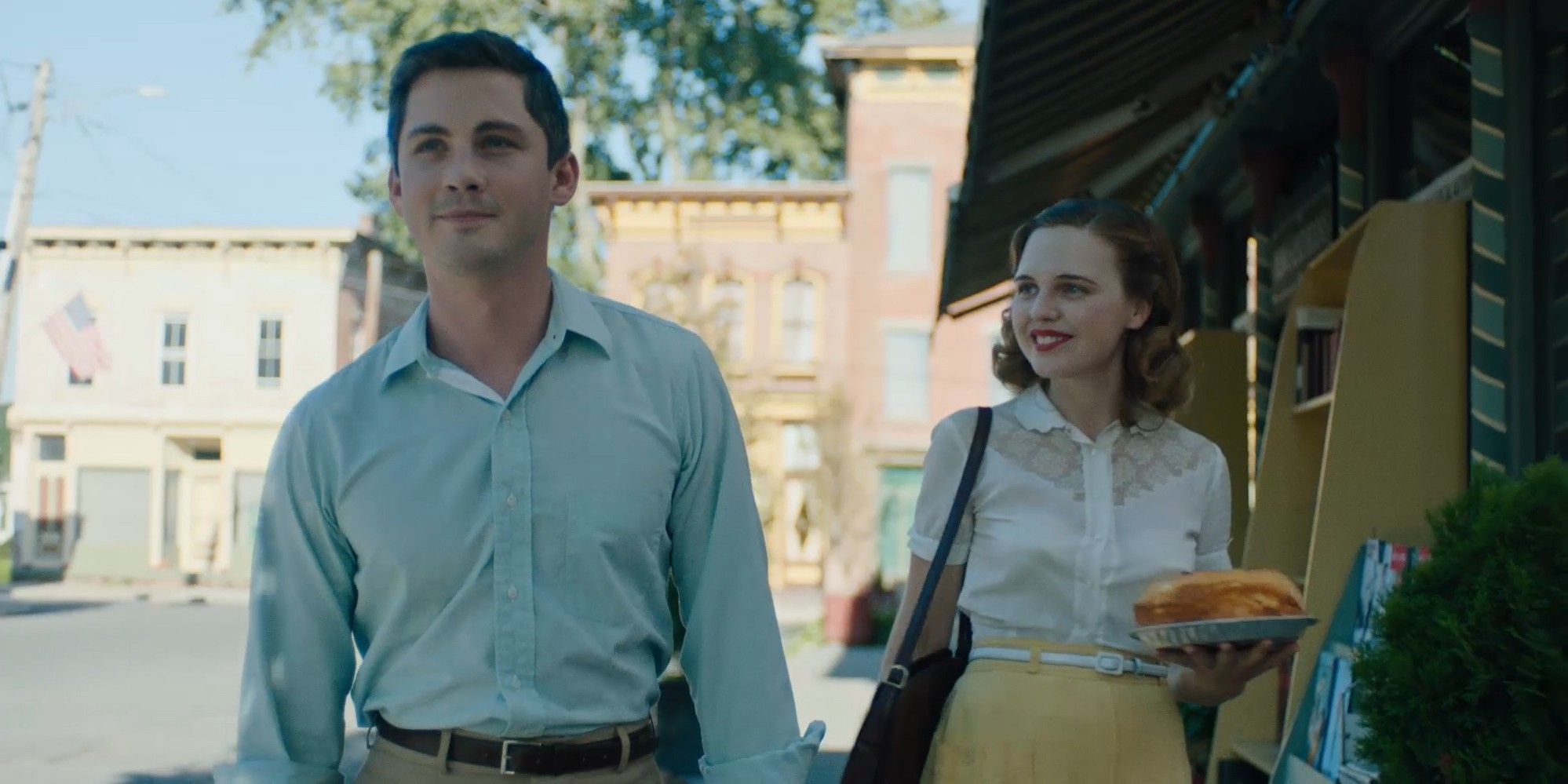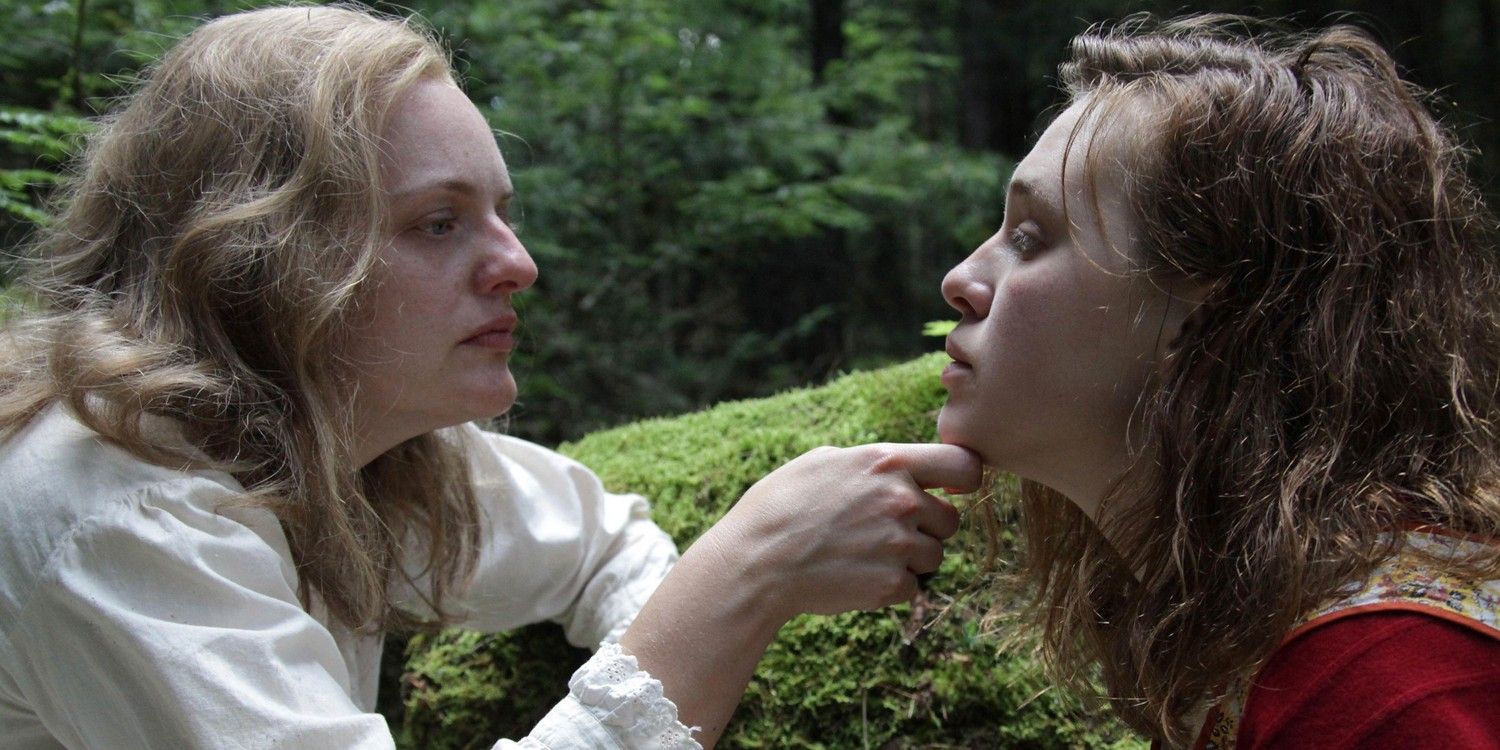One imagines Shirley is exactly the type of Shirley Jackson biopic the author herself would've approved of. Adapted from the novel of the same name by Susan Scarf Merrell, the film plays out like one of Jackson's own psychological horror stories about the interior lives of "othered" women ostracized or repressed by the societies of their time. At the heart of this narrative is a semi-fictionalized version of Shirley (brought to stunning life by Elisabeth Moss in yet another addition to her growing collection of great performances as women in turmoil) and Rose, the young newly-wed who forms a truly fascinating relationship with Ms. Jackson. While it can be too elliptical for its own good, Shirley is a frequently spellbinding blend of fiction and memoir anchored by a mesmerizing Moss.
Written by Sarah Gubbins, the film follows the recently-married Rose (Odessa Young) and Fred Nemser (Logan Lerman) as the pair travels to Vermont, where Fred will work alongside Shirley's Bennington College professor-husband Stanley Hyman (Michael Stuhlbarg). On the train ride over, Rose fervently reads Shirley's famous short story "The Lottery" and is equally enchanted by the author in person, despite her uninviting manner. Claiming to be concerned about Shirley, who suffers from agoraphobia and smokes and drinks as much as she writes, Stanley persuades Rose and Fred to move in with them, so the former (who's expecting her first child) can keep an eye on her. But as they spend more time together, Rose is confronted by thoughts and feelings she's never voiced out loud, providing inspiration for Shirley's new novel.
As with her previous feature-length projects, director Josephine Decker (Butter on the Latch, Madeline's Madeline) forgoes a conventional structure for Shirley in favor of something more experimental. The film often jump-cuts unexpectedly, perfectly reflecting Shirley's fractured perspective as her mind constantly wanders between moments both real and imagined, to the point where they begin to blur together. Moss' Shirley Jackson is a similarly unorthodox lead for a biopic and comes across as a specter haunting her own house (an artist whose creative process is as torturous as it is gratifying). Like any good haunted house movie, Shirley boasts great sound design and brings the Jackson residence to life as a rich soundscape of creaking walls, clinking dishes, and insects singing eerily outside. Further setting the mood, Decker and her DP Sturla Brandth Grøvlen shoot the movie with the same sense of lyrical realism favored by so many of her admitted influences (like Michel Gondry and Terrence Malick), right down to their dizzying handheld camerawork.
Moss as Ms. Jackson is as mystifying and enigmatic as the film around her, and her dynamic with Rose (who's brought to life in a note-perfect turn by Young) is just as riveting. It can be tricky to nail down the exact nature of their attraction to one another - emotional, sexual, or maybe a bit of both - and Shirley's fondness for playing mind games with Rose only further muddies the water, but that's by intent. In the end, Shirley is primarily interested in exploring the complicated, yet undeniably intimate connection that develops between these two women when they're away from their husbands and the confines of the patriarchal world they belong to. Great as ever, Stuhlbarg still manages to go toe to toe with Moss in the acting department when he shows up. His philandering Professor Hyman is the perfect blend of charismatic and sleazy, but even his charming intellectual act only goes so far as to hide the sense of ownership he clearly feels when it comes to Shirley and her writing.
For all its rich atmosphere and great performances, Shirley could've used some additional refining when it comes to its basic storytelling. The overarching plot is somewhat chaotic and jumbled in its design, which serves the movie's purposes until it tries to build to an emotional crescendo with its third act. This prevents its various pieces from fitting together as smoothly as they might've, resulting in a film that's full of engrossing ideas and subtext, yet struggles to weaves them together to form fully cohesive themes. It's hard to complain too much given all the food for thought Shirley has to offer - about mental illness, creativity, youth vs. age, and a whole lot more - but, overall, it's a film that's perhaps more interesting to puzzle over than it necessarily is to experience.
Still, the real Jackson probably would've wanted a movie about her to throw the standard biopic formula out the window and mess around with the genre's conventions. (Stuhlbarg's Professor Hyman, who rants about his distaste for "terrifically competent" writing at one point, would certainly prefer a quasi-successful experiment to the usual approach.) Shirley was a big hit with the Sundance crowd when it premiered at this year's iteration of the film festival back in January, but even with Moss and Stuhlbarg bringing their acting A-game, it's safe to assume this particular (sorta) memoir isn't going to be everyone's cup of tea. That being said: for fans of Shirley Jackson's literature and/or Moss' less mainstream offerings in recent years, this trip to the author's "haunted" house is definitely worth taking.
Shirley is now available on Hulu, VOD, Virtual Cinemas, and participating drive-in theaters. It is 107 minutes long and is rated R for sexual content, nudity, language and brief disturbing images.



